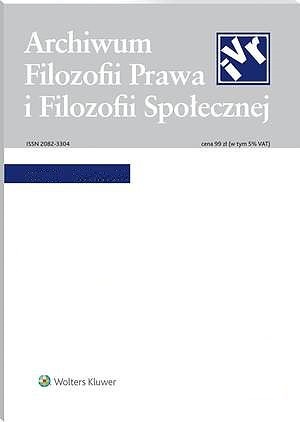The Rule of Recognition – a Remedy for the External Uncertainty of Law?
The Rule of Recognition – a Remedy for the External Uncertainty of Law?
Author(s): Urszula Anna Kosielińska-GrabowskaSubject(s): Law, Constitution, Jurisprudence, Philosophy of Law, Philosophy of Law
Published by: Stowarzyszenie Filozofii Prawa i Filozofii Społecznej – Sekcja Polska IVR
Keywords: Hart; Kelsen; Grundnorm; rule of recognition; External Uncertainty of Law
Summary/Abstract: According to H.L.A. Hart, the rule of recognition is one of secondary rules that is supposed to be a remedy for the uncertainty of primary rules. In this paper we will try to answer the question: To what extent may this rule guarantee legal certainty? After discussing important differences between the concept of the rule of recognition and Kelsenian concept of the basic norm (Grundnorm), we will examine the role of the rule of recognition in the context of the problem of the external certainty of law. When analyzing its content, meaning and effects of using the criteria of validity contained in the rule of recognition, we discovered three types of uncertainty related to the rule of recognition: the substantive, interpretive and applicative one. Our considerations have led us to the conclusion that the rule of recognition, having as its aim the function of removing the uncertainties of law, is itself one of the sources of these uncertainties. It is difficult to consider it as a genuine effective remedy to the external uncertainty of law. The construction of the rule of recognition means that the degree of certainty which we obtain as a result of its application appears to be greater than in the case of “ordinary” primary rules within the system, yet we will never obtain a total external certainty of law unless we apply another theoretical construction.
Journal: Archiwum Filozofii Prawa i Filozofii Społecznej
- Issue Year: 4/2012
- Issue No: 1
- Page Range: 23-33
- Page Count: 11
- Language: English

